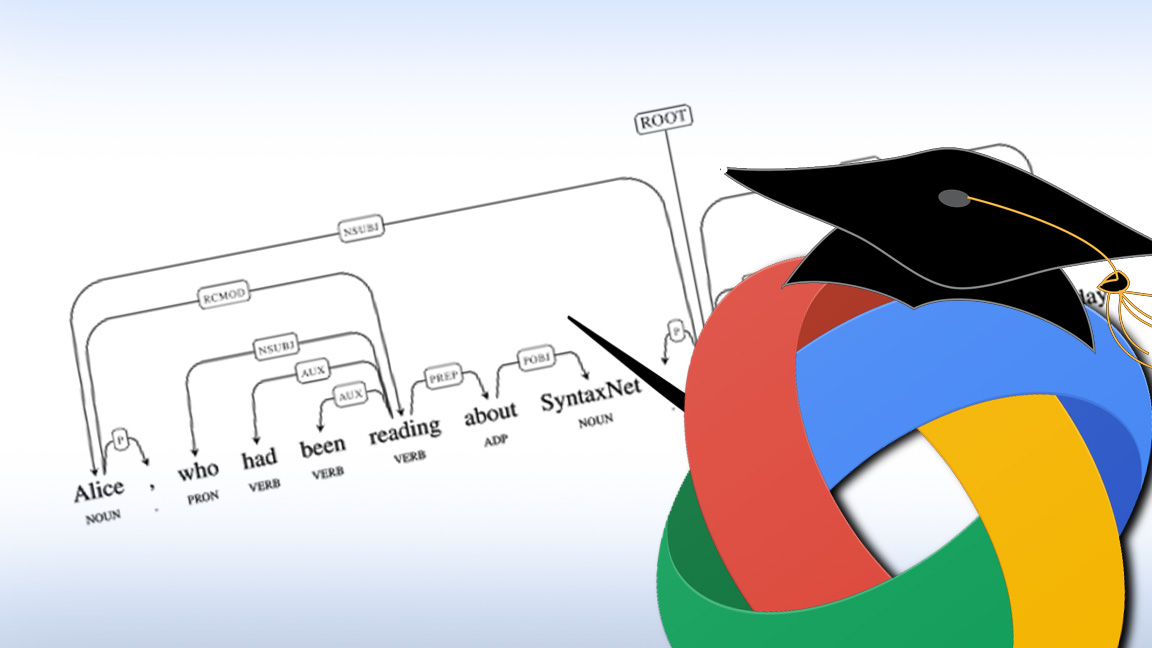Google wants to teach robots how to read good
It's seriously named Parsey McParseface

Have trouble telling your participles from your prepositions? So do computers, but Google wants to change that with its new open-source English language parser, which breaks down sentences grammatically so robots can understand context better and do other stuff good too.
The program - affectionately named Parsey McParseface after the hilarious Boaty McBoatface scenario during Britain's Name Our Ship contest - uses a series of algorithms to break down sentences word-by-word into the proper parts of speech.
Parsey McParseface comes as part of SyntaxNet, Google's open-source framework for TensorFlow, which was in turn developed by Google Brain Team to facilitate improved machine learning.
Robo-Reading
While programs up until now can have a fair grasp of English, it can still mess up on context clues that humans take for granted. For example, 'Alice drove down the street in her car' could be interpreted as normal or refer to a street that magically exists inside Alice's car that's being driven down.
These kind of differentiation are what Parsey McParceface is designed to figure out. By understanding context surrounding each object in a sentence, it can better "understand" what is happening.
In fact, Parsey brings home the good grades with a reported 94% accuracy after testing. Google admits that McParseface works best with "well-formed sentences," dropping to 90% when grabbing sentences from the web.
Still, that's a solid A- performance, which beats some of the grades we got back in the day. Plus, when the robot overlords come, the least they can do is understand the direct root verb in our pleas for mercy.
Sign up for breaking news, reviews, opinion, top tech deals, and more.
